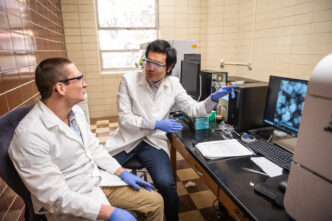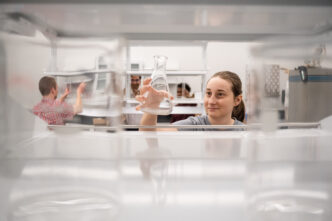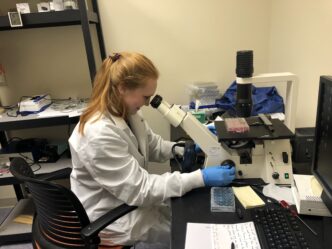A search-and-rescue team aided by artificial intelligence scans a disaster area for a missing person. A human spotter in the air suggests shifting to a new area, and the AI assistant concurs, while a team member on the ground disagrees.
What happens next?
That is the kind of question that Christopher Flathmann of Clemson University is working to answer with a new research project. Flathmann, an assistant professor in the School of Computing, is focusing on how human beings and AI can best work together, including how to resolve conflict.
“The broad goal is to say, if we’re going to integrate an AI system into the workforce–into any team– we don’t want it to be at the cost of humans working together,” Flathmann said. “In fact, we wanted to bolster humans working together.”
The three-year project is funded with $400,000 from the Air Force Office of Scientific Research’s Young Investigator Program.
The program reserves funding for early-career investigators who show exceptional ability and promise for conducting basic research, marking Flathmann as a rising star in higher education.

His research is particularly timely, as the military and growing number of companies integrate AI into the workforce, he said.
“AI technology at this point is not something that is not nice to have– it’s going to become a requirement to handle these complex environments,” Flathmann said. “We can’t just have singular teams do singular missions anymore. Teams of teams have to work together, and large groups have to work together.”
Part of the project focuses on building and designing AI technology that helps preserve how human beings interact with each other, while part focuses on creating a training program to prepare humans to work with AI.
As part of the project, Flathmann and his team plan to have a general population of adults go through military-style search-and-rescue simulations and see how they interact with AI teammates.
They expect the findings to apply not only to the military but to broader questions about how to integrate AI into the workforce.
The research will give Flathmann’s students a chance to work in one of the world’s fastest-growing areas of study. Among them is Kwame André, a recent Clemson computer science graduate who is now a Ph.D. student in Flathmann’s lab.
“The speed that AI is developing– it is going to be integrated immediately,” André said. “So when it’s integrated is it just going to harm relationships with people, or do we get in there and help mediate those relationships and help keep them together?”
It’s a crucial question Flathmann and André are working to resolve in favor of humans working together– as they have for millennia– but now with a new kind of help.







